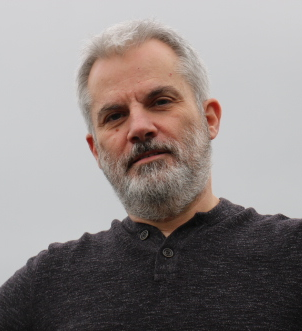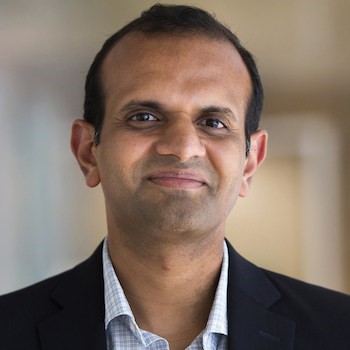
Invited Speakers

Sili Deng
Massachusetts Institute of Technology, USA
Scientific Machine Learning for Multi-Fidelity Combustion Modeling
Scientific machine learning (SciML) offers transformative tools for multi-fidelity combustion modeling, bridging experimental data, physics-based insights, and computational efficiency. This talk presents three recent examples ranging from kinetic modeling to system surrogates. First, a Chemical Reaction Neural Network (CRNN) framework quantifies thermal-kinetic uncertainties in lithium-ion battery thermal runaway by leveraging Bayesian inference on differential scanning calorimetry data, improving predictive accuracy for cell-scale models. Second, a PDE-constrained optimization approach extracts kinetic and transport properties from thermal wave dynamics in energetic materials, enabling insights into reaction-transport coupling without full state variable measurements. Third, a digital twin framework, demonstrated for biomass combustion in industrial-scale furnaces, employs a Reactor-Structure-Resembled Network (RSRNet) and incremental learning to reconstruct high-dimensional scalar fields with minimal CFD data, achieving robust predictions under varying conditions. These advancements underscore the power of SciML in addressing critical challenges in combustion modeling and optimization.
Biography
Prof. Sili Deng is the Class of 1954 Career Development Associate Professor in Mechanical Engineering at Massachusetts Institute of Technology. She received her doctoral degree in Mechanical and Aerospace Engineering from Princeton University, co-advised by Profs. Chung K. Law and Michael E. Mueller. After her postdoctoral training with Prof. Xiaolin Zheng at Stanford University, she joined MIT as an Assistant Professor in 2019. Her research focuses on energy conversion and storage, specifically, the fundamental understanding of combustion and emissions, physics-informed data-driven modeling of reacting flows, carbon-neutral energetic materials, and flame synthesis of materials for catalysis and energy storage. Prof. Deng received the Bernard Lewis Fellowship from the Combustion Institute in 2016, was selected as a member of the Frontiers of Engineering from the National Academy of Engineering in 2021, received the NSF CAREER Award in 2022, was selected as a Scialog Fellow by Research Corporation for Science Advancement in 2024, and received the Irvin Glassman Young Investigator Award by Eastern States Section of Combustion Institute and the Energy and Fuels Rising Star Award in 2024.

Christos E. Frouzakis
ETH Zürich, Switzerland
Spectral element direct numerical simulations in laboratory-scale complex geometries
The spectral element method offers significantly lower numerical diffusion and dispersion errors at higher polynomial orders at a competitive cost compared to low order method. It is particularly well-suited for the DNS of turbulent flows, where the accurate time-advection of small features over long distances in complex geometries is required. Nek5000 and NekRS are two highly-efficient and scalable open source incompressible and low Mach flow solvers employing the high-order weighted residual technique. Through plugins, they have been extended to reactive flows and have been used in CPU and GPU-accelerated high performance computing systems to simulate combustion in laboratory-scale setups. Recent applications including soot modeling in the RQL burner at UCAM and lean hydrogen combustion in the TUDa optical engine are presented.
Biography
Christos Frouzakis is a senior researcher and lecturer at the Swiss Federal Institute of Technology in Zurich. His research interests include high order methods for chemically reactive flows, high performance computing, combustion instabilities.

Venkat Raman
University of Michigan, USA
Multiphysics and Multiscale Challenges in Liquid-fueled Detonation Engines
Rotating detonation engines (RDEs) are emerging as an attractive option for realizing compact and highly efficient propulsion and energy conversion. RDEs contain moving detonation waves in confined geometries, sustained by continuous injection of non-premixed reactants into the combustion chamber. When using liquid fuels, several design challenges arise due to the need to rapidly transfer fuel mass to the gas phase and time-constrained mixing and chemical reaction processes. Due to the extreme range of pressure and temperature and the highly compressible and high-speed flows within such systems, new physics regimes and modeling needs also emerge. The focus of this talk is to lay out the complexity of such systems in the context of next-generation computing machinery. Recent progress in the simulation of liquid-fueled RDEs and paths for research will be presented. The role of exascale architecture, the promise of artificial intelligence, and the need for radical changes to modeling and algorithms will be discussed.
Biography
Venkat Raman received his PhD from Iowa State University in the Department of Chemical Engineering and was a NASA/Center for Turbulence Research Postdoctoral Fellow at Stanford University. Before joining the University of Michigan, he was on the faculty at The University of Texas at Austin. He is now a tenured professor at the University of Michigan in the Department of Aerospace Engineering. Raman received an NSF CAREER award in 2008, a distinguished paper award at the International Combustion Symposium in 2013, and he held the Eli. H and Ramona Thornton Centennial Fellow in Engineering at UT Austin from 2013-2014. He is a recipient of the George J. Huebener, Jr. Research Excellence Award from the University of Michigan. He was elected Fellow of the Combustion Institute in 2022 and serves as an Associate Editor of Combustion and Flame and the AIAA Journal of Propulsion and Power. As a faculty member, Raman has advised/is currently advising 40 PhD/MS students and has published more than 175 peer-reviewed articles in archival journals and conferences. Raman’s research interests lie in the broad area of computational propulsion but have more recently focused on detonation engines and scramjet-based hypersonic propulsion. Raman will serve as the Program co-Chair for the 41st International Symposium on Combustion, to be held in Kyoto, Japan, in 2026.